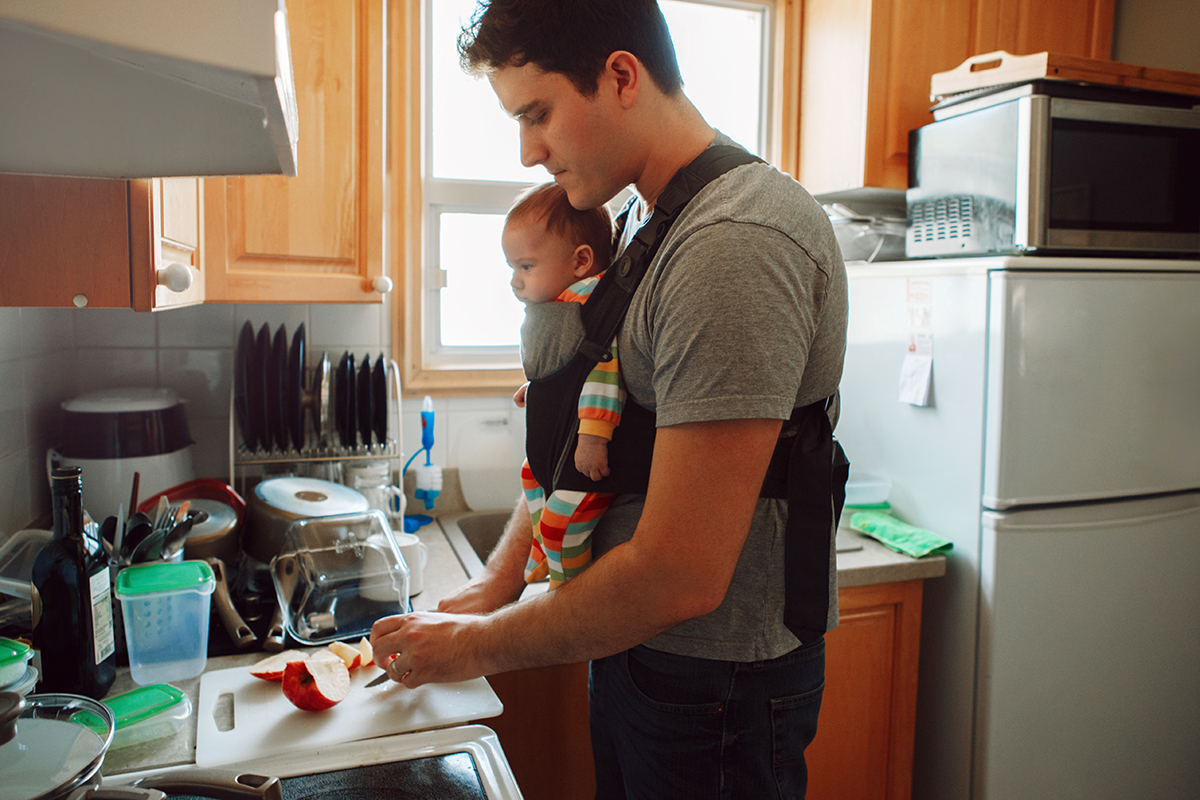Top 5 Reasons Husbands Initiate Divorce
USA Teenage Divorce Statistics
5 Signs of Financial Abuse in Marriage
Creating the Perfect Parenting Plan
Are People Happier After Divorce?

The question of custody after a mother’s passing can be a complex issue. Below we identify who may get custody in this very unfortunate circumstance.
An acknowledgment of paternity is a legal document signed by both the mother and father, voluntarily stating that the man is the biological father of the child. This document serves as an affirmation of the father’s legal rights and responsibilities towards the child, including the ability to seek custody in case of the mother’s demise.
If the mother passes away and the father has acknowledged paternity, it strengthens his position in custody matters. It does not automatically guarantee sole custody. Courts always prioritize the best interests of the child when making custody determinations.
If a father is unable or unwilling to establish paternity, or if it is determined that the acting father is not the biological father, custody of the child may be granted to another family member or a suitable guardian.
If both the biological parents were married, the stepparent may have a higher chance of successfully adopting the child. The court will evaluate the relationship between the child and the prospective adoptive parent, including their commitment, emotional bond, and ability to provide a stable and nurturing environment.
In cases where the stepparent has been actively involved in the child’s life and has developed a strong parental relationship, courts may be more inclined to grant the adoption.
Adoption by a stepparent after the death of a mother can provide emotional and practical benefits for the child. It allows for the continuation of a stable family unit, minimizing disruption during an already difficult time. The stepparent, who has likely played an active role in the child’s life, can provide a sense of familiarity and security, helping the child to cope with loss and adapt to their new reality.

If the deceased mother had prepared a will that explicitly stated her preference for the custody of her child, then the court generally honors that request. The court’s ultimate priority is to act in the best interest of the child.
In cases where the mother did not have a will, the court will need to establish custody arrangements based on various factors. The court analyzes several elements, such as the child’s relationship with both parents, each parent’s ability to provide a stable and nurturing environment, and the child’s preferences, depending on their age and maturity.
The court may also consider the child’s relationship with other family members, such as grandparents or close relatives, who may seek custody. [1]
In some cases, if no suitable family member is available or deemed suitable to care for the child, the court may appoint a guardian ad litem (GAL). A GAL is a neutral party appointed by the court to represent the child’s interests and make recommendations to the court regarding custody arrangements or guardianship.
In situations where the mother dies, various parties can request guardianship depending on the specific circumstances and the laws of the jurisdiction. These are the parties who can potentially be granted guardianship when a mother passes away:
The Father
If the father is alive and holds parental rights, he will likely be the first person the court considers when determining child custody. The court’s main objective is to safeguard the child’s best interests, and if the father is deemed fit to care for the child, he may be awarded custody. Each custody case is unique, and factors such as the father’s ability to provide a stable home environment and his overall suitability as a guardian will come into play.
Legal Guardian
If the father is unable or unwilling to assume custody, the court may explore other options. This could involve considering a legal guardian designated by the mother. In some cases, the court may consider a grandparent or another family member who can demonstrate the ability to provide a safe and loving environment for the child.
Close Family Members
If no biological parent or legal guardian is available or suitable, the court may consider close family members such as grandparents, aunts, uncles, or even siblings. The court will assess the family member’s capability to meet the child’s emotional, physical, and educational needs. Factors such as the family member’s relationship with the child, financial stability, and overall ability to provide a supportive environment will be taken into account.
Friends or Extended Relationships
This scenario occurs less frequently but can occur when the court believes it serves the child’s best interests and ensures their well-being and continuity of relationships.

If the deceased mother had prepared a will that explicitly stated her preference for the custody of her child, then the court generally honors that request. The court’s ultimate priority is to act in the best interest of the child.
In cases where the mother did not have a will, the court will need to establish custody arrangements based on various factors. The court analyzes several elements, such as the child’s relationship with both parents, each parent’s ability to provide a stable and nurturing environment, and the child’s preferences, depending on their age and maturity.
The court may also consider the child’s relationship with other family members, such as grandparents or close relatives, who may seek custody. [1]
In some cases, if no suitable family member is available or deemed suitable to care for the child, the court may appoint a guardian ad litem (GAL). A GAL is a neutral party appointed by the court to represent the child’s interests and make recommendations to the court regarding custody arrangements or guardianship.
In situations where the mother dies, various parties can request guardianship depending on the specific circumstances and the laws of the jurisdiction. These are the parties who can potentially be granted guardianship when a mother passes away:
The Father
If the father is alive and holds parental rights, he will likely be the first person the court considers when determining child custody. The court’s main objective is to safeguard the child’s best interests, and if the father is deemed fit to care for the child, he may be awarded custody. Each custody case is unique, and factors such as the father’s ability to provide a stable home environment and his overall suitability as a guardian will come into play.
Legal Guardian
If the father is unable or unwilling to assume custody, the court may explore other options. This could involve considering a legal guardian designated by the mother. In some cases, the court may consider a grandparent or another family member who can demonstrate the ability to provide a safe and loving environment for the child.
Close Family Members
If no biological parent or legal guardian is available or suitable, the court may consider close family members such as grandparents, aunts, uncles, or even siblings. The court will assess the family member’s capability to meet the child’s emotional, physical, and educational needs. Factors such as the family member’s relationship with the child, financial stability, and overall ability to provide a supportive environment will be taken into account.
Friends or Extended Relationships
This scenario occurs less frequently but can occur when the court believes it serves the child’s best interests and ensures their well-being and continuity of relationships.
Contact Sacks & Sacks child custody lawyers today to schedule a free consultation.
Q. What happens if there are disagreements between family members regarding custody after the mother’s death?
The court will carefully evaluate the circumstances and consider several factors, including the best interests of the child, the living situation and stability provided by each family member involved, and the ability of each party to meet the child’s physical, emotional, and educational needs. The court may appoint a guardian ad litem or custody evaluator to assess the situation and make recommendations on the most suitable arrangement for the child.
Q. Are siblings considered for custody if the mother dies?
When determining custody after the death of a mother, siblings are often considered as potential guardians for the child. Courts typically prioritize maintaining sibling relationships and the stability they provide. Factors such as age, ability to meet the child’s needs, and the sibling’s willingness to take on the responsibility will be taken into account. The ultimate goal is to ensure the child’s well-being and best interests are safeguarded in the event of the mother’s death.
Q. How can a father strengthen his case for custody if the mother dies?
A father who has provided consistent and regular involvement in the child’s life prior to the mother’s passing will be considered most seriously. The father should gather evidence highlighting his ability to provide a stable and nurturing environment for the child, such as testimonials from teachers, doctors, or other individuals involved in the child’s life. Document instances where he has acted in the child’s best interests, including any efforts to promote a positive co-parenting relationship.
[1] Reasons Why Grandparents Can File for Custody of a Grandchild | MetLife. (n.d.). MetLife. https://www.metlife.com/stories/legal/reasons-grandparents-can-file-for-custody-of-grandchild/
Sacks & Sacks Law — 2025 All Right Reserved